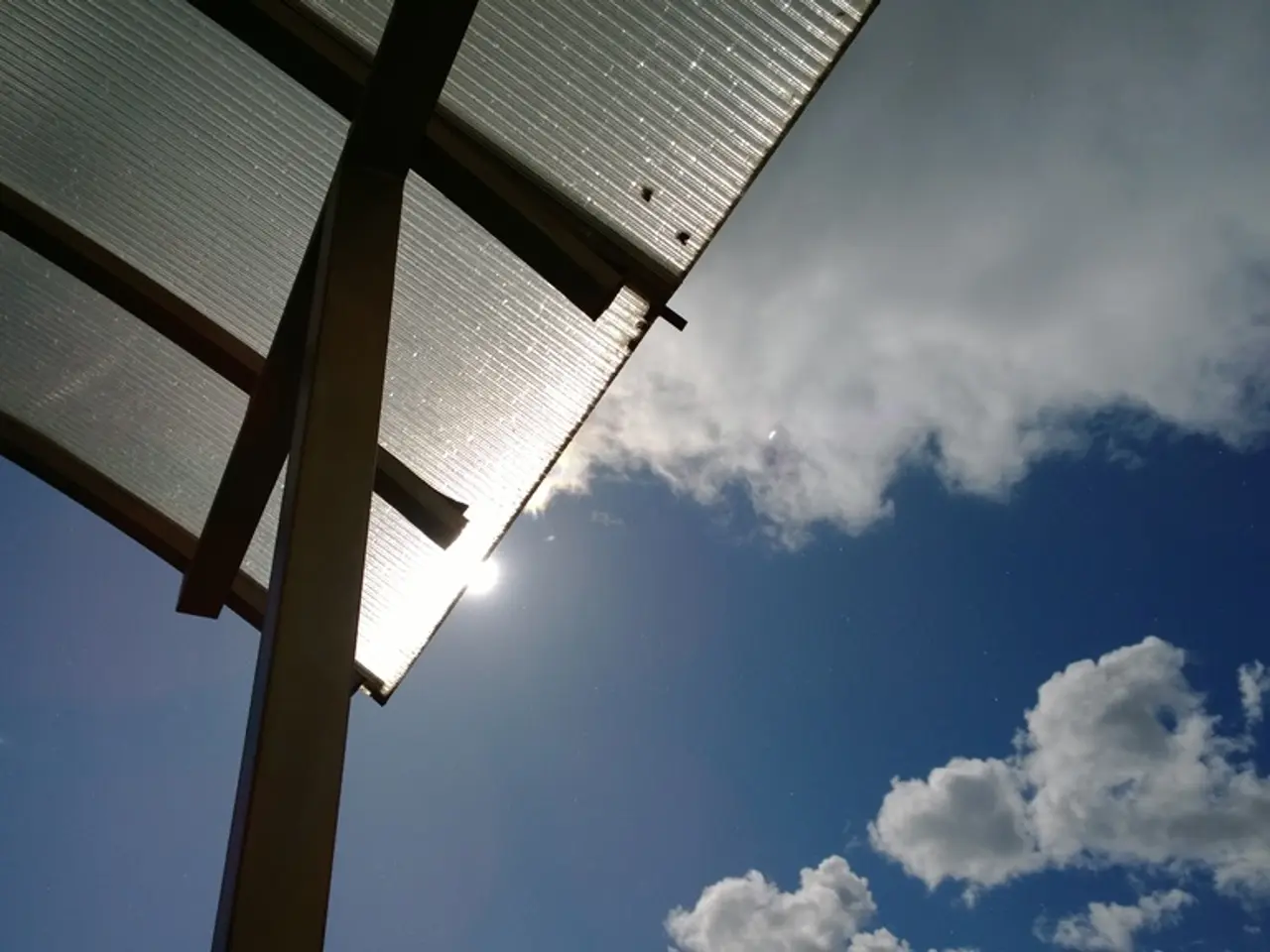Metropolitan Stations in Düsseldorf Now Free from Asbestoscontamination
In the heart of Düsseldorf, Germany, the city and Rheinbahn, the local U-Bahn operator, have been proactive in ensuring the safety of passengers. Recently, some concerns about asbestos contamination were raised at the U-Bahn station Nordstraße. However, as of the latest available information up to mid-2025, there have been no widely reported or officially confirmed ongoing asbestos contamination issues at the U-Bahn stations Nordstraße, Bordstraße, or their immediate surroundings.
The asbestos contamination at the Nordstraße station was discovered during renovation work. Since May 21st, access to the station has been blocked, and passengers are advised to use the stations "Ergo Platz/Klever Straße" or "Heinrich-Heine-Allee" instead. Rheinbahn security personnel ensure that all windows in the trains are closed when passing through the station Nordstraße, and additional tests at the neighboring stations have been negative.
Further samples were taken at the U-Bahn station Bordstraße on Tuesday (27.5.). No asbestos was found in the interior of the U-bahns with closed windows, and measurements on the surface of the construction equipment area at Fischerstraße showed no pollutant contamination. Parallel to the investigation of the asbestos source at the Nordstraße station, other stations are now being tested for asbestos.
Rheinbahn drivers are opening all doors on the platform side at all other stations on lines U78 and U79 to allow fresh air into the cars. A foil has been used to isolate the distribution level from the traffic level at the station Nordstraße. Announcements in German and English are made in the trains before the affected route section, asking passengers to keep the windows closed during the passage.
It is essential to note that asbestos was commonly used in building materials in many older constructions, including public transportation infrastructure, particularly before regulations became stricter in the late 20th century. However, German authorities and transportation operators, such as Rheinbahn, routinely inspect, manage, and remediate potential asbestos hazards during renovation or maintenance work according to stringent safety standards.
For the most accurate and updated status, especially for safety or health concerns, contacting Rheinbahn directly or consulting Düsseldorf city environmental health departments would provide official confirmation. If there had been recent asbestos contamination or risk identified at these specific stations, it would likely be subject to formal public announcements, temporary station closures, or remediation efforts publicly documented and communicated to passengers for safety reasons.
In summary, there are no known or reported current asbestos contamination issues at Nordstraße, Bordstraße, or nearby U-Bahn stations. Routine monitoring and remediation practices are standard in Düsseldorf’s public transport. Official sources are the best reference for real-time updates if concerns arise.
The ongoing investigation of asbestos contamination at the Nordstraße U-Bahn station has led to parallel tests for asbestos at nearby stations. In the realm of health-and-wellness and environmental-science, it's crucial to ensure that public spaces like U-Bahn stations are free from harmful substances such as asbestos.




